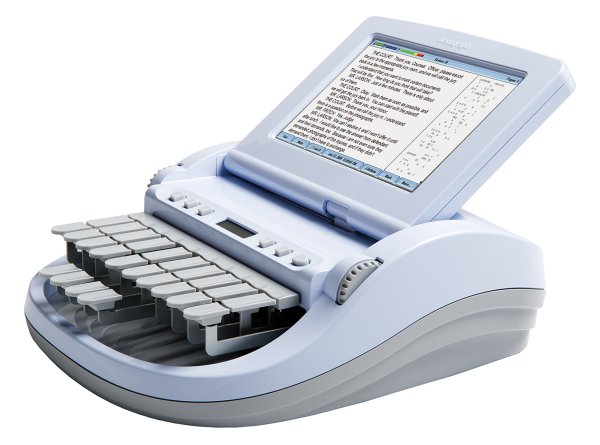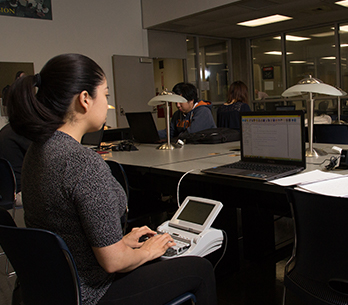Why Every Law Firm Needs Reliable court reporting Services
Why Every Law Firm Needs Reliable court reporting Services
Blog Article
Comprehending the Important Function of Court Coverage in Legal Proceedings
Court coverage is usually neglected, yet it's crucial in lawful proceedings. You might not understand exactly how stenotype reporter guarantee every word spoken is videotaped precisely, influencing choices made by discretionary. Their skills and technology play a substantial role in preserving the stability of lawful records. What precisely does the process include, and exactly how has it advanced over time? Allow's discover the fundamental functions of court reporting and its significance in the legal landscape.
The Background of Court Coverage
Court coverage has an abundant background that dates back to ancient worlds, where scribes used different techniques to catch spoken words. The earliest forms of shorthand emerged in Greece around 400 BC, allowing theorists and politicians to tape-record speeches rapidly. As you move through background, you'll find that the Romans took on comparable methods, refining them to document legal procedures. By the 16th century, contemporary shorthand systems began to materialize, making it possible for court reporters to produce exact records effectively.
Today, court reporters play a substantial role in lawful proceedings, making certain that every word spoken in the court room is accurately documented. Recognizing this history highlights the relevance of court reporting in preserving a reasonable legal system.
The Skills Needed for Court Reporters
As a stenotype reporter, you require strong inputting abilities to stay on top of the hectic discussion of lawful procedures. Your capability to pay attention attentively is just as essential, making sure every word is recorded accurately. Grasping these abilities is crucial to delivering accurate and trusted transcripts.
Skilled Keying Capacities

Strong Paying Attention Skills
Solid listening abilities are vital for court reporters, as they must accurately catch spoken words in genuine time. You require to concentrate intently on the discussion, getting subtleties, tone, and context to assure every detail is recorded properly. This ability assists you set apart between audio speakers, understand lawful jargon, and follow complex conversations. It's not simply about listening to words; it's concerning comprehending and translating them promptly. You'll typically deal with different accents and speech patterns, so adaptability is crucial. Practicing active paying attention strategies can improve your capacities; as an example, summarizing what you've heard after conversations can reinforce your skills. Inevitably, solid listening skills make you an indispensable asset in legal proceedings, making certain clearness and accuracy in the court record.
The Modern Technology Behind Court Coverage
In the domain of legal proceedings, technology plays a vital role in enhancing the precision and performance of court coverage. You're likely knowledgeable about the typical stenotype maker, however modern court reporters now make use of sophisticated software that integrates with these equipments, enabling real-time transcription. This indicates you can have instant accessibility to the transcript as the proceedings unravel.
Digital audio recording is another technical innovation that's getting traction. It catches every talked word, ensuring absolutely nothing is missed out on. Some press reporters utilize voice recognition software program, which can assist enhance the transcription procedure, though it still requires human oversight for accuracy.
Additionally, cloud-based storage space enables simple accessibility and sharing of records, improving cooperation among lawful teams. By leveraging these modern technologies, court reporters can provide high-grade, timely records that are essential for the legal process. Welcoming this technology not only boosts your understanding however additionally guarantees integrity in lawful paperwork.
The Court Reporting Refine

As legal procedures unravel, the court reporting procedure comes to be important in catching every detail precisely. You'll discover that a stenotype reporter plays an important role by transcribing spoken words into written message in real-time. When you enter the court room, the press reporter is currently prepared, outfitted with specialized devices like stenographic machines and audio recording devices.
During the proceedings, the press reporter pays attention diligently, keying out every little thing claimed, from witness testaments to legal representatives' debates. You might discover them stopping occasionally to ensure clearness or to request a repeat if something wasn't clear. After the session, this contact form the reporter reviews the transcript, making necessary edits for readability.
This entire process not just assures a comprehensive record but additionally prepares you for future referral throughout charms or case reviews. In the busy setting of a courtroom, the court reporting process is important for maintaining an exact account of occasions.
The Relevance of Precision in Records
While a court press reporter's primary duty is to record talked words, the accuracy of these transcripts is important for the integrity of lawful process. When you're involved in a situation, you rely on specific paperwork to understand the events and arguments offered. Any type of errors in transcription can bring about misunderstandings, misconceptions, and even wrongful judgments.
Exact transcripts assure that every detail is recorded, offering a trusted document for judges, lawyers, and juries. This degree of information is necessary during charms or when referencing past statements. If a transcript contains errors, it can undermine the whole lawful process, possibly affecting end results.
Moreover, precise records support the civil liberties of all parties entailed, advertising justness and transparency. Whether you're a legal representative preparing for trial or a witness showing on your testament, you can rely on that the court reporter's ability in accuracy plays a considerable duty in your instance's success.
The Role of Court Reporters in Different Legal Setups
Stenotype reporter play an essential role in various legal settings, from tests to depositions and lawful hearings. You'll find that their job assurances every talked word is accurately recorded, which is vital for the lawful procedure. Recognizing just how their duties differ across these blog environments can highlight their influence on the justice system.
Court Reporters in Trials
In any type of legal test, you'll discover that court reporters play an essential role in recording the procedures with accuracy and accuracy. Court reporters have to preserve focus and rate, typically using customized devices to keep up with fast-paced dialogue. Inevitably, court reporters aid support the justice system, ensuring openness and responsibility throughout tests.
Depositions and Legal Hearings
Beyond tests, stenotype reporter additionally play an important role in depositions and lawful hearings. Throughout these procedures, they record every spoken word, making certain an accurate document of testimonies and conversations. You'll locate that this precision is necessary, as depositions commonly act as a structure for later arguments in court. Stenotype reporter provide real-time transcription services, permitting attorneys to comply with along and address any type of concerns right away. Their job enhances the effectiveness of legal hearings, making it simpler for go to the website all celebrations to refer back to the official record. Furthermore, the transcripts they generate can be significant for appeals and other lawful procedures - court reporting. In other words, court reporters are vital in maintaining the integrity and clearness of the legal document in depositions and hearings.
Future Fads in Court Coverage
As modern technology continues to evolve, the future of court reporting promises to be shaped by innovative tools and practices that enhance precision and performance. You'll likely see enhanced use artificial knowledge and real-time transcription solutions, simplifying the reporting procedure. These improvements can aid you gain access to transcripts quicker, which can be crucial for your legal approaches.
Furthermore, integrating video conferencing and remote coverage will certainly end up being much more common, enabling you to connect with stenotype reporter from anywhere (court reporting). This adaptability can make depositions and hearings a lot more easily accessible, saving both time and resources
You'll also notice a focus on digital recordkeeping, which streamlines the storage space and retrieval of records. With cloud-based options, you'll have the capability to share files firmly and work together with your legal group in real-time.
Often Asked Questions
What Is the Ordinary Income of a Stenotype Reporter?
The ordinary income of a court reporter differs by place and experience, but you can anticipate it to range from around $50,000 to $80,000 each year. Numerous factors affect this income, consisting of expertise and demand.
Exactly how Do I Become a Qualified Stenotype Reporter?
To end up being a certified court press reporter, you'll need to finish a court reporting program, pass a certification test, and gain useful experience. It's essential to remain updated on sector requirements and proceeding education demands.
What Types of Situations Do Court Reporters Cover?
Stenotype reporter cover different instances, including criminal trials, civil claims, depositions, and settlement hearings. You'll locate them documenting whatever, making certain accurate records for courts, attorneys, and celebrations entailed, capturing every word talked in lawful settings.
Are Court Reporters Required to Have a Degree?
Yes, court press reporters normally need a degree or accreditation in court coverage. Several programs offer specialized training, ensuring you obtain the skills required for precise transcription and lawful documents in various settings.
Can Court Reporters Work From Another Location?

Report this page